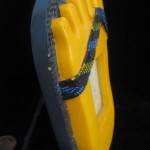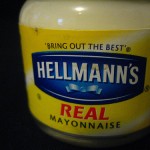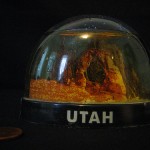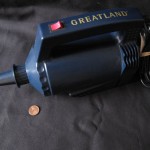The following Q&A, with Significant Objects co-director Rob Walker, was published earlier this month by Good Magazine. Interviewer: Patrick James.
Make Believe Mementos: Significant Objects turns cast-aside knickknacks into sought-after heirlooms — through the power of fiction.
Rob Walker and Joshua Glenn like to sift through the detritus of thrift stores and rummage sales. They’re looking, specifically, for worthless items — a Fred Flintstone Pez dispenser, a ceramic cow-shaped creamer — which they purchase for pocket change. They then commission a noteworthy writer (such as Luc Sante or Kurt Andersen or Mark Frauenfelder) to craft a fictional story that prominently features a given trinket, or, as they call it, “nothing object.” Once someone writes a fictional story about the nothing object, it becomes, as if by magic (or metaphysics), a significant object, and is sold on eBay along with a copy of its story — to the author go the profits. So far, Significant Objects is an incredibly fun, if curious, success, one that toys with the disparity between an object’s financial and emotional values, and speaks to our wonderfully human propensity to believe in nonsense. We spoke to co-founder Rob Walker to learn where this fascinating concept came from.
GOOD: This project is superbly weird. What inspired it?
ROB WALKER: Years ago, I broke a coffee cup — which was from a diner in Baltimore where my now wife and I had gone early in our relationship. It would be meaningless to anyone else. It was just a coffee cup with the name of some diner on it. But I was just so upset about it. Why? Of course, it the story that was attached to it.
G: How did you get from a broken coffee cup to Significant Objects?
RW: From there, it was [a question of] well, what if you made up stories? Would that make things more interesting? This idea has been kicking around with me for a long time. I had done a book called Buying In, about consumers and why people buy things. When I heard about [Joshua Glenn’s book] Taking Things Seriously, I just thought he’d be a great person to work with because he was thinking about things the same way. And it would be more plausible, I think, for the two of us to do it together.
G: So you guys just started calling people and asking them to make up stories about knickknacks?
RW: We both sort of made up a list of people that we thought would be cool, ranging from people we knew and were therefore realistic to people who were way out of reach and seemed very unlikely. Relatively quickly, even before we launched and people had something to look at, I was pretty amazed at how perceptive people we just cold e-mailed or cold called or were — like Kurt Anderson was just willing to go along with it. I guess he thought it was a cool idea.
G: Do the writers get to choose which objects they write about?
RW: We generally give them a couple of choices, you know, three things. But in some cases, writers don’t want to have to worry about that. Some writers actually are pretty much like, Give me the worst thing you’ve got.
G: There’s nothing like an artificial constraint or parameter to force someone to be creative.
RW: I think that’s right. And I think that as it turned out, what writers are attracted to is the creative challenge. What can I come up with if you just give me an object? Some writers go funny, some writers go sad, some writers go meta. For some writers the object is the whole story; for some it’s an afterthought.
G: And some of the most mass-produced objects turn into the most unique stories. For instance, I can’t imagine a more forgettable trinket than a Pez dispenser.
RW: Yeah, yeah and there’s a bunch of ways to go in terms of telling a story about it. [“Fred Flintstone Pez Dispenser” by Claire Zulkey], about a father leaving home, is not a lighthearted story. But I think that that’s true to real life. The fact that it might be mass manufactured may be irrelevant, like that coffee cup I was talking about. I’m sure they make thousands of them, and I’m sure that many of them didn’t mean anything to anybody. But it meant something to me.





